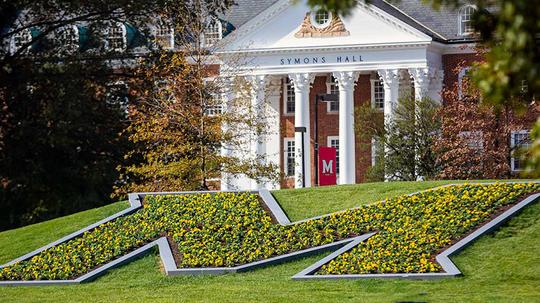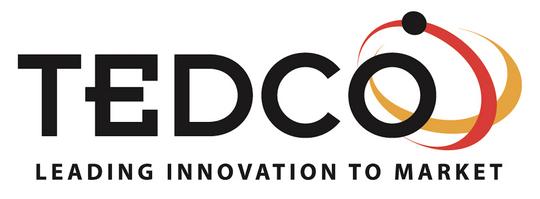
TEDCO established the Maryland Innovation Initiative (MII) in 2012 as a technology transfer program with the goal to grow and accelerate promising technologies through venture creation. University of Maryland College Park (UMCP) is one of five universities working in partnership with TEDCO on the MII program.
Pitchbook recently ranked UMCP as one of the top 100 institutions for entrepreneurs. It ranked 35th among graduate schools with $9.6 billion in venture capital.
“The venture creation resulting from MII is steadily adding high paying tech jobs to the state’s economy and is helping us to retain our highly trained workforce that are otherwise lost to surrounding regions and other parts of the country,” said Arti Santhanam, Ph.D., executive director of MII.
Maryland is the No. 1 state for technology and science workforce and second in graduate or professional degree attainment. UMCP and UMB together rank 10th in the nation among public universities, according to Ken Porter, director of UM Ventures for UMCP.
The state is also the second largest recipient of federal funding for research in the nation, according to Porter.
“We as a state have much to lose. Our graduates are some of the most sought-after in the country, but they aren’t leaving, and instead are staying in Maryland to start companies, thanks in part to MII,” he said.
User informed market viability
Monifa Vaughan-Cooke, Ph.D., is an assistant research professor at UMCP in mechanical engineering at the Center for Risk and Reliability Brain and Behavior Institute and the recipient of the Technology Assessment Phase MII grant. Her research focus is on human performance modeling and human centered design.
Along with Louis Dankovich IV, a post-doc research associate in her lab, Vaughan-Cooke developed and tested the commercial viability of their wearable system for gesture recognition as part of the MII grant.
Many current wearable assisted devices lack accuracy due to the shifting of sensors on the user’s body, while the more state-of-the-art technologies available are cost prohibitive. This UMCP technology uses more conventional parts and measures the shape change of specific areas of the arm due to muscle use.
The Technology Assessment Phase includes conducting a commercial opportunity and risk assessment for a technology and developing a detailed commercialization and go-to-market plan.
“The MII grant helped us explore potential customers, validate the market and determine if this could be a viable enterprise. This program opened my eyes to explore the market in ways I wouldn’t have considered – who wants it, and the needs and concerns it could help,” said Dankovich.
Possible markets include videogame users and those with physical disabilities – anyone who is challenged by range of motion.
“In the medical industry there is a higher threshold for validation than consumer electronics. Determining which market to pursue would inform the analysis and data collection. This work allowed us to discover gaps in product offerings to accommodate users and there is a lot of room for growth,” said Vaughan-Cooke.
Next generation technologies
For the luxury goods market, anti-counterfeiting technology is critical to ensure consumers are receiving an authentic product. Unfortunately, most anti-counterfeiting products on the market are easy to crack and require changing the technology often.
Po-Yen Chen, Ph.D., an assistant professor in chemical and biomolecular engineering at UMCP, is the founder of MantaCode, a graphene-based, unclonable anti-counterfeiting tag. This technology stores more information, has faster processing time and higher authentication security, which helps protect products throughout the entire manufacturer-to-customer distribution process. The tags are water resistant and fireproof, are easily decodable with a phone app and impossible to replicate.
“This was my first time working through the MII program and it is most special. Unlike other grants, it helps bridge from research to market, providing us the budget to hire a consultant with strong market expertise. The MII program helped me to think deeper and have a better sense of the commercialization process and develop a business plan,” said Chen.
Chen plans to apply for a Company Formation Phase MII grant. The Company Formation phase includes corporate product development in preparation for a product launch or the advancement of a product technology to achieve a commercial milestone that significantly increases the company’s value and better positions the company for follow-on investment and scaled growth.
From research lab to store shelves
Srinivasa Raghavan, Ph.D., professor of chemical engineering at UMCP, has extensive experience in commercialization and university tech transfer. He has received multiple MII grants, most recently leading the teams for GripBoost, a gel to restore tackiness on athletic gloves, and Medcura, which is producing materials to stop bleeding.
Medcura produces a product to stop bleeding (called Rapid-Seal Wound Gel) that can be found at stores such as CVS and Walmart. When this gel is squirted onto a bleeding wound, it rapidly stops the bleeding and seals the wound.
“MII is the best type of funding. There is an urgency required and it encourages researchers to work faster. The application process requires less time to complete and the response is faster than other types of grants,” Raghavan said.
“It’s perfect for someone like me who likes to invent new things. It supports my ability to translate technology into practical use and determine if it’s commercially viable,” he said.
Raghavan is currently working on a recent innovation (funded by another MII grant) of an electro-adhesive hydrogel that can replace sutures in surgery. It will allow for a new, simpler way to seal a wound that doesn’t require a skilled surgeon.
Raghavan and Chen were both nominated for UMCP’s Invention of the Year Awards in 2022 (Raghavan won in the life sciences category). More than 100 inventions have been awarded to date, selected for their technical merit, improvements to existing technology, commercial potential and overall benefit to society.
According to Porter, “MII lowers the barrier to entrepreneurship. Researchers publish a paper and move on. Through MII, they explore the opportunities for a single invention and all the ways it can affect society.”
Fostering an active tech ecosystem with programs like MII to mentor, fund and support the creation of new businesses is key to retaining young talent out of our universities.
According to Santhanam, Maryland’s elevation in national rankings for commercialization is critical. “Investment in tech commercialization and the creation of new business translates to income flowing into the state through follow-on investments, creation of jobs and retention of the talent trained in labs and corporations in Maryland.”

TEDCO, the Maryland Technology Development Corporation, enhances economic empowerment growth through the fostering of an inclusive entrepreneurial innovation ecosystem. TEDCO identifies, invests in and helps grow technology and life science-based companies in Maryland. Learn more at tedcomd.com.
Tammi Thomas is the chief marketing and communications officer at TEDCO.

